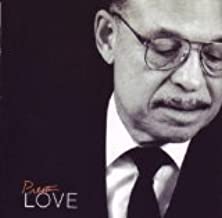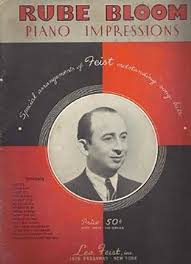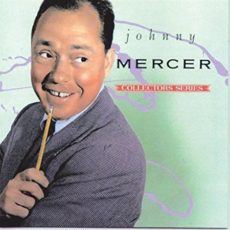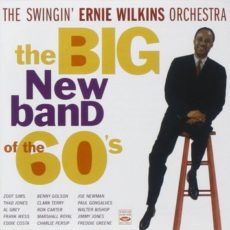
Daily Dose Of Jazz…
Louis Landon was born on May 6, 1931 in Yonkers, New York and began studying piano at age five, playing classical compositions. Shortly afterward his parents got him piano lessons. In 1960 his family relocated to Studio City, California where his father, Leo De Lyon, is the voice actor best known as Brain and Spook in the popular television cartoon, Top Cat.
In the early 1970s, Landon transferred from Stony Brook University to Berklee College of Music in Boston, Massachusetts to pursue his studies in jazz. While playing in and around Boston, Landon met saxophonist, John Payne, and toured with the John Payne Band for three years from 1974 to1977. During that period they recorded four albums, to which he contributed his songwriting skills, and incorporate a jazz fusion style into their sound and opened for Weather Report, The Tony Williams Lifetime, John McLaughlin.
Leaving Boston for Manhattan, he formed a jazz fusion band called Nightfire, and did studio work and freelanced around New York City. During the late 1970s, Landon auditioned for and landed the position of the keyboardist in the John Hall band. Appearing on Hall’s Columbia Records LP, Power, he subsequently began touring with composer and pop singer Rupert Holmes. He toured extensively during the course of the next few years across the country with Hall and Holmes as well as Mikhail Baryshnikov and Pucho & His Latin Soul Brothers.
He has also performed with The Doobie Brothers, Bonnie Raitt, and John Hall at the 1979 No Nukes concert that produced a triple live album released in 1980 that Landon is credited on as a keyboard player.
Composer, solo pianist for peace, singer-songwriter, recording artist, and touring musician from New York City, Louis Landon currently resides in Sedona, Arizona.
More Posts: bandleader,history,instrumental,jazz,music,piano,singer,songwriter

Daily Dose Of Jazz…
Preston Haynes Love, born April 26, 1921 in Omaha, Nebraska, grew up in the North Omaha and graduated from North High. He became renowned as a professional sideman and saxophone balladeer in the heyday of the big band era. He was a member of the bands of Nat Towles, Lloyd Hunter, Snub Mosley, Lucky Millinder and Fats Waller before getting his big break with the Count Basie Orchestra when he was 22. Love played and recorded with the Count’s band from 1945–1947 and played on Basie’s only #1 hit record, Open The Door Richard.
Love eventually became a bandleader and played behind Lena Horne, Billie Holiday, his friends Johnny Otis and Wynonie Harris, with whom he had several hits.
In 1952, he launched the short-lived Spin Records, as a joint effort with songwriter Otis René (When It’s Sleepy Time Down South). The label released material by the Preston Love Orchestra, among others.
As the music changed so did he and in the early 1960s Love moved to Los Angeles, California and began working with Ray Charles and Aretha Franklin, eventually becoming Motown’s West Coast house bandleader with whom he played & toured with The Four Tops, The Temptations, Tammi Terrell, Marvin Gaye, Gladys Knight, Smokey Robinson, Diana Ross, and Stevie Wonder among others.
He recorded with Nichelle Nichols, Janis Joplin, Frank Zappa, Shuggie Otis, T-Bone Walker, Charles Brown, Ruth Brown, and many others. Preston also appears in the Clint Eastwood film Play Misty For Me with the Johnny Otis band. He toured the U.S. and Europe quite frequently into the 2000s, additionally lecturing and writing about the history he was part of.
In his later years Love moved back to Omaha, wrote a book, led bands, the last of which featured his daughter vocalist Portia Love, drummer Gary E. Foster, pianist Orville Johnson, and bassist Nate Mickels. He was an advertising agent for the Omaha Star, a local newspaper serving the city Black community.
A recipient of several awards and honors including induction into the Omaha Black Music Hall Of Fame, saxophonist, bandleader, and songwriter Preston Love, who released three albums as a leader, passed away on February 12, 2004, after battling prostate cancer.
More Posts: bandleader,history,instrumental,jazz,music,saxophone,songwriter

Daily Dose Of Jazz…
Reuben Bloom was born on April 24, 1902 in New York City, where he learned to play the piano. During the 1920s he wrote many novelty piano solos which are still well regarded today. He recorded for the Aeolian Company’s Duo-Art reproducing piano system various titles including his Spring Fever.
In 1927 Rube had his first hit with Soliloquy and his last hit was “Here’s to My Lady” in 1952, which he wrote with Johnny Mercer. In 1928, he made a number of records with Joe Venuti’s Blue Four for OKeh Records, including five songs he sang, as well as played piano.
He formed and led a number of bands during his career, most notably Rube Bloom and His Bayou Boys. They recorded three records in 1930 that are considered some of the best made during the early years of the Depression. The Bayou Boys was an all-star studio group consisting of Benny Goodman, Adrian Rollini, Tommy Dorsey and Mannie Klein. At other times, Bloom played with other bands, such as with Bix Beiderbecke and Frankie Trumbauer in the Sioux City Six as well as his continued frequent work with Joe Venuti’s Blue Four.
During his career, Rube also worked with many well-known performers, including Ruth Etting, Stan Kenton, Jimmy Dorsey. He collaborated with a wide number of lyricists including Ted Koehler, and Mitchell Parish. During his lifetime he published several books on the piano method.
Bloom’s I Can’t Face the Music with lyrics by Ted Koehler was recorded by Ella Fitzgerald on her 1962 Verve release, Rhythm is My Business, in a fabulous swing/big band version with Bill Doggett. Some of his best-known composition collaborations with lyricists were Day In, Day Out and Fools Rush In (Where Angels Fear to Tread) with lyrics by Johnny Mercer; Give Me the Simple Life with Harry Ruby; and Maybe You’ll Be There with lyrics by Sammy Gallop.
Pianist, vocalist, songwriter, arranger, bandleader, recording artist, and author Rube Bloom passed away on March 30, 1976 in his hometown.
More Posts: arranger,author,bandleader,history,instrumental,jazz,music,piano,recording artist,songwriter,vocal

Daily Dose Of Jazz…
John Herndon Mercer was born November 18, 1909 into a prominent family Savannah, Georgia. He became known to the world simply as Johnny and liking music as a small child was exposed this parents singing, minstrels, vaudeville shows. Growing up with Black playmates and servants he gained further exposure to Black music listening to the fishermen and vendors, Black church music. Having no formal musical training he was singing in a choir by six and by eleven years old had memorized almost all of the songs he had heard and became curious about who wrote them.
Mercer’s talent was in creating the words and singing, he listened to Ma Rainey, Bessie Smith, and Louis Armstrong, and with his natural sense of rhythm easily learned to dance from Arthur Murray. He attended Woodberry Forest boys prep school where he was a member of the literary and poetry societies, and the hop committee that booked musical entertainment on campus. He became the stamp of approval on all orchestra and new productions and quickly learned the powerful effect songs had on girls.
Though headed for Princeton University as a legacy, his hopes were dashed with the Great Depression but eventually escaped Savannah and moved to New York in 1928, when he was 19. Jazz and blues, were booming in Harlem and Broadway was bursting with musicals and revues from George Gershwin, Cole Porter, and Irving Berlin. He got small acting parts, wrote lyrics, met Eddie Cantor who encouraged him and finally got a song, composed by Everett Miller, into the Garrick Gaieties in 1930. His first song was recorded by Joe Venuti and his New Yorkers.
At 20 he began hanging out with other songwriters to learn the trade, traveled to California on a lyric writing assignment for the musical Paris in the Spring, met Bing Crosby and Louis Armstrong returned to New York and got a job as staff lyricist for Miller Music for a $25-a-week draw. He would go on to win a vocal position with Paul Whiteman’s orchestra, then make his vocal recording debut with Frank Trumbauer’s Orchestra, and o apprentice with Yip Harburg on the score for Americana. But it was his chance pairing with Indiana-born Hoagy Carmichael that his fortunes improved dramatically with Lazybones, which became a hit one week after its first radio broadcast, and each receiving a large royalty check of $1250.
Mercer became a member of ASCAP and a recognized “brother” in the Tin Pan Alley fraternity alongside Irving Berlin, George Gershwin, and Cole Porter among others. As the demand for the stand alone song diminished he set his sights on Hollywood and landed a job with RKO and claiming his first big Hollywood song I’m an Old Cowhand from the Rio Grande was performed by Crosby in the film Rhythm on the Range in 1936. The demand for him as a lyricist took off and his second hit that year was Goody Goody followed by a move to Warner Brothers studio in 1937.
He would go on to write hits like Jeepers Creepers, You Must Have Been a Beautiful Baby, Day In, Day Out, Fools Rush In, One for My Baby (and One More for the Road), That Old Black Magic and Come Rain or Come Shine, Skylark, In the Cool, Cool, Cool of the Evening, as well as lyrics for the established instrumental hits Laura, Midnight Sun, Satin Doll and Autumn Leaves among others.
By the mid-1940s enjoyed a reputation as one of the premier Hollywood lyricists. With the advent of rock and roll in the 1950s and the transition of jazz into “bebop” Mercer’s natural audience and venues for his songs dwindled. He continued to write a string of hits for some MGM films, made occasional television appearances, teamed up with Henry Mancini and wrote the wrote the lyrics to Moon River, Days of Wine and Roses and Charade. He would go on to write I Wanna Be Around and Summer Wind and the lyrics for I Remember You which was the most direct expression of his feelings for the affair he had in 1941 with then 19-year old Judy Garland.
Over the course of his career Johnny would team up with Richard Whiting, Harry Warren and Johnny Mandel, have his lyrics recorded as part of Ella Fitzgerald’s Songbook series, received eighteen Oscar nominations, winning four for Best Song, founded Capitol Records, and helped establish the National Academy of Popular Music’s Songwriters Hall of Fame.
Diagnosed was an inoperable brain tumor, lyricist Johnny Mercer passed away on June 25, 1976 in Bel Air, California. Posthumously, the Songwriters Hall of Fame established the Johnny Mercer Award, he was honored with a postage stamp, received a star on the Hollywood Walk Of Fame, given tribute in the book and film Midnight in the Garden of Good and Evil, a statue was unveiled in Ellis Square in Savannah, and The Johnny Mercer Collections, including his papers and memorabilia, are preserved in the library of Georgia State University in Atlanta, GA.
![]()
More Posts: lyrics,songwriter,vocal

Daily Dose Of Jazz…
Ernest Brooks Wilkins Jr. was born on July 20, 1922 in St. Louis, Missouri. In his early career he played in a military band, before joining Earl Hines’s last big band. By 1951 he began working with Count Basie but after four years, in 1955 he began freelancing as a jazz arranger and writer of songs and was much in demand at that time.
By the Sixties Ernie’s success declined but revived after working with Clark Terry. This led to his touring Europe and his eventual settling in Copenhagen, Denmark, where he would live for the rest of his life. There he formed the Almost Big Band so he could write for a band of his own. The idea was partly inspired by his wife Jenny as the city had a thriving jazz scene with several promising jazz musicians as well as an established community of expatriate American jazz musicians that formed in the 1950s and included Kenny Drew and Ed Thigpen who joined the band along with Danish saxophonist Jesper Thilo.
The band released four albums, but after 1991 he became too ill to do much with it. He was responsible for orchestral arrangements on 1972’s self-titled album by Alice Clark, on Mainstream Records, that is a highly sought-after collectible today. He has a street named after him in southern Copenhagen, Ernie Wilkins Vej.
Tenor saxophonist, arranger and songwriter Ernie Wilkins, who wrote for Tommy Dorsey, Harry James, and Dizzy Gillespie, in addition to being the musical director for albums by Cannonball Adderley, Dinah Washington, Oscar Peterson, and Buddy Rich, passed away on June 5, 1999 of a stroke in Copenhagen.
![]()
More Posts: arranger,saxophone,songwriter




